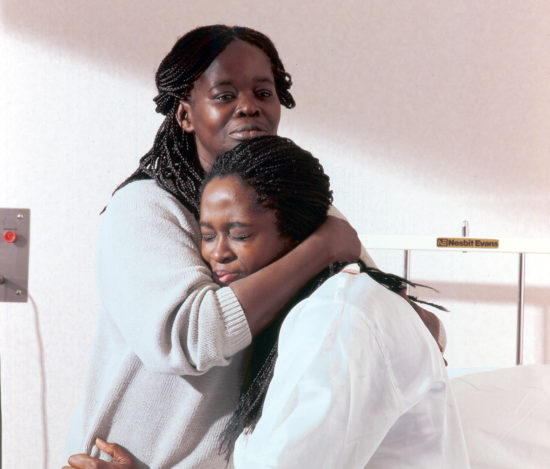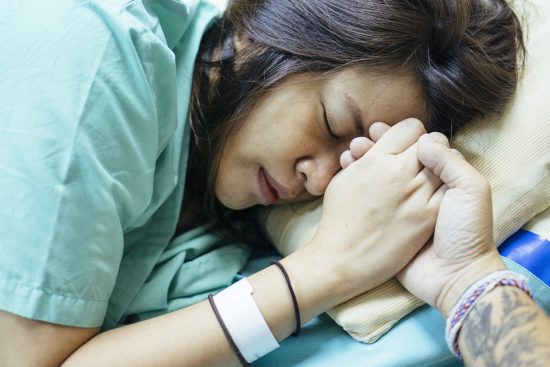Coronavirus can affect plans for birth including guidance for birth partners.
Here we talk through what changes you might expect and what to think about ahead of the birth.

Having a supportive birthing partner can make a huge difference to a woman’s birth experience. It can help give them a sense of control and comfort.
But how will coronavirus affect birth partners? We provide an outline below, but do keep talking to your midwifery team to stay up-to-date with developments.
On 8 September, the NHS issued guidance on the re-introduction of visitors in maternity settings and hospitals. This is a change to policy published in June when visiting was subject to local discretion by Trusts and other NHS bodies. Sadly, this meant many women had to attend their antenatal appointments and scans alone.

Significantly, the guidance outlines how partners and other supportive adults or individuals for a pregnant woman can again attend pregnancy scans, important appointments, provide support in early labour or spend time with their newborn babies on the postnatal ward.
You will still be asked to follow social distancing rules and wear a mask or face covering when entering a hospital.
The guidance already outlined that every woman should be able to have one birth partner stay with her through labour and birth.
To help prevent the spread of coronavirus, it’s very important that you don’t attend the maternity unit if you have any symptoms of coronavirus or have had any in the previous seven days.
Maternity teams are therefore encouraging women and their current birth partner to think of another birth partner as a back up.
If you are supporting a woman during labour and birth, there will be strict infection control procedures in place to prevent the spread of coronavirus to other pregnant women and their babies, as well as other people within the hospital and maternity staff.
Wash your hands regularly with soap and water, and use hand sanitiser gel in clinical areas
You will be asked to follow these guidelines:
If your partner is having a caesarean birth, operating theatre staff will be wearing PPE and it may be more difficult for them to communicate with you. A specific staff member will support you though. You’ll be advised to follow their instructions and talk to them if you have any questions.
To enable the clinical staff to do their job, it’s very important that you don’t move around the operating theatre as you risk de-sterilising sterile areas and spreading the virus.
Your maternity team will do everything they can to make sure you can be present for the birth. However, if there is a particular safety concern, they may ask that you are not present in the operating theatre. If this is the case, the team should discuss this with you and explain their reasons unless it is an emergency.
The expert guidelines and understanding about COVID-19 is changing on a daily basis. To make sure you have the most reliable information, please check the RCOG website.

The guidance includes answers to a range of questions such as:
Interactive, engaging and social, our live online antenatal course is a great way for you to meet other local parents, and get essential unbiased information and knowledge about pregnancy, birth and early days with your baby.
We have a wealth of information about coronavirus and pregnancy and in the early days of parenthood. Check out all our articles, including our FAQs on coronavirus, pregnancy and parenthood.
Our support line offers practical and emotional support with feeding your baby and general enquiries for parents, members and volunteers: 0300 330 0700.
The RCM has produced this helpful FAQ with advice and information on different aspects of pregnancy and birth for women and their families.
For more information and updates about birth and the coronavirus, see the RCOG website.
Click on the following links for guidance on self-isolation in Arabic, Bengali, Cantonese, French, Gujarati, Mandarin, Polish, Portuguese, Punjabi, Urdu and Welsh.
For more information about coronavirus in various languages see here.
See the latest government information on keeping yourself safe during the pandemic.